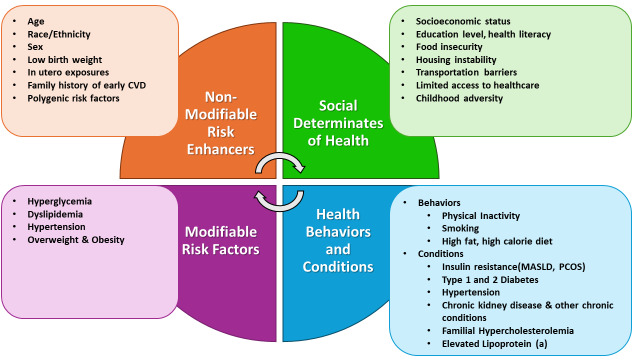
## Minor Adjustments, Major Effects: Fitbit Research Connects Moderate Activity to Decreased Heart Risk
A recent investigation shared at the **American Heart Association Scientific Sessions 2024** has revealed significant findings regarding the heart health advantages of physical activity. The study, which involved **over 6,000 participants** throughout the U.S., indicated that even slight increases in physical activity—measured using **Fitbit data**—can drastically lower the chances of **atrial fibrillation (AFib)**, the most prevalent type of irregular heartbeat. The research presents convincing proof that adhering to **recommended exercise guidelines** can diminish the likelihood of atrial fibrillation by a remarkable 60%, showcasing the enduring advantages of maintaining an active lifestyle.
### Minor Adjustments, Major Effects
Everyday activities such as walking, cleaning, or gardening can yield unexpected rewards for your heart. Research co-led by Dr. Sean Heffron indicates that **incorporating just one additional hour of physical activity each week** could lower the risk of developing atrial fibrillation by **11%**.
“Our research emphasizes that there’s no need to start completing marathons to help thwart atrial fibrillation and other heart diseases,” stated Dr. Heffron, the senior author of the study. “Simply remaining moderately active can, over time, lead to significant benefits for upholding a healthy heart.”
This insight may especially resonate with individuals who find it challenging to follow demanding exercise routines but still wish to improve their heart health. Even mild yet consistent activity can build up over time to provide protective cardiovascular advantages.
### Beyond Self-Reporting: Utilizing Fitbit Data
Differentiating this study from previous research, this analysis utilized **objective data sourced from Fitbit devices**, rather than depending on participants’ self-assessments. Self-reporting can often lead to inaccuracies resulting from memory errors, reporting biases, or misunderstandings regarding what constitutes “physical activity.” By examining real-time Fitbit data from those involved in the **National Institutes of Health’s All of Us program**, researchers ensured that the tracked exercise levels accurately reflected participants’ realities.
The results were remarkable: individuals who participated in **2.5 to 5 hours** of **moderate-to-vigorous physical activity**—in line with **American Heart Association (AHA)** recommendations—exhibited **60% lower risk of developing atrial fibrillation** in comparison to less active individuals. Even more impressively, those who exercised **over 5 hours weekly** experienced a **65% decrease in risk**.
### Real-World Activity Monitoring
The study’s lead author, **Dr. Souptik Barua**, highlighted how real-world activity tracking with Fitbits and similar devices can tremendously benefit medical research. Unlike short-term studies or those reliant on subjective accounts, this research utilized longitudinal data, monitoring participants for a full year to collect dependable baseline activity data. Researchers then kept track of participants for an additional five years, enabling them to accurately observe changes in heart health over time.
“These findings underscore the importance of Fitbits and similar monitors in health research,” Dr. Barua explained. “By providing an **objective measure of exercise** over extended periods, these devices can yield deeper insights into how various activity patterns affect health.”
This type of technology has contributed to some of the first clear demonstrations of how real-world, moderate activity levels are directly linked to reduced health risks like AFib in the broader population.
### The Way Forward
Cardiologists and public health professionals alike are keenly awaiting the potential long-term advantages unveiled by this study. As wearable fitness technologies become increasingly prevalent, they will play an essential role in preventive healthcare. The capability to monitor daily activity over long durations may also encourage individuals to take a more proactive stance in managing their heart health.
The results affirm what the medical community has long observed informally—that even slight increases in physical activity yield substantial benefits for cardiovascular health. The research not only reinforces the existing **American Heart Association guidelines** but also provides clear proof that continuous moderate activity can avert severe complications such as atrial fibrillation, a major contributing factor to strokes and other cardiovascular incidents.
### Glossary
– **Atrial fibrillation (AFib):** A condition where the heart’s upper chambers beat irregularly, often causing poor blood circulation.
– **Moderate-to-vigorous physical activity:** Exercise that varies in intensity from brisk walking to activities like jogging or rapid cycling.
– **Arrhythmia:** Any abnormal or irregular heartbeat pattern.
– **Baseline:** The initial reference data utilized for comparison in scientific research.
### Quiz
Test your knowledge based on the main findings from the study:
1. **How much can an additional hour of weekly exercise lower atrial fibrillation risk?**
_Answer: 11%_
2. **What reduction in risk was observed in individuals who exercised 2.5–5 hours weekly?**
_Answer: 60%_
3. **For how long did researchers monitor participants’ baseline activity?**